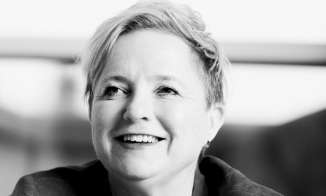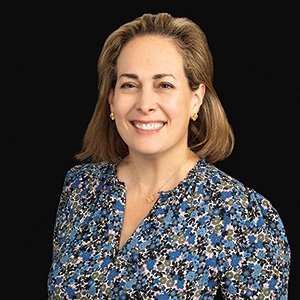Algerian boxer Imane Khelif made headlines around the world when her Olympic bout against Italy’s Angela Carini ended after just 46 seconds, prompting a heated public debate about gender and eligibility in women’s boxing.
Khelif had been permitted to fight at the Olympics despite being disqualified from the IBA Women’s World Boxing Championships in March 2023, after the IBA claimed she had not met the female category eligibility criteria.
Carini’s post-fight comments about Khelif’s strength, combined with renewed media interest in the earlier disqualification, sparked a culture war frenzy, with everyone from Elon Musk to the UN special rapporteur on violence against women and girls weighing in on the controversy.
Behind the scenes, a multidisciplinary team from Withers, led by Milan-based sports head Luca Ferrari and including London employment and sports specialist Libby Payne and disputes partner Andrew Fremlin-Key, had been working pro bono for Khelif for many months, helping her to challenge her disqualification.
 Legal Business caught up with Payne (pictured) to discuss working with an athlete caught in the eye of a storm.
Legal Business caught up with Payne (pictured) to discuss working with an athlete caught in the eye of a storm.
When did you start working with Imane Khelif?
We started working with Imane in March 2023, just after she was disqualified from the IBA Women’s World Boxing Championships. One of Imane’s managers knew our head of sports, Luca Ferrari – when this issue came up, he knew he needed a really good sports lawyer, and so he picked up the phone to Luca and asked us to help. We were only too happy to oblige.
Are you free to give your opinion on the on the IBA disqualification?
At the point at which Imane was disqualified, there were no rules about gender in qualification or eligibility criteria and there was certainly no testing protocol or well-defined policy such as the one World Athletics has. I would describe the decision to exclude someone without having a policy in place as being very open to challenge.
What is it like having such a high-profile client?
It’s not an unusual situation for us to have high-profile clients who are under the media glare, but I don’t think I’ve had a client who’s had the same amount of coverage for such a sustained period as Imane did. Whenever we advise a high-profile client, we are aware of the potential for press intrusion and that is a factor we take into account when advising.
Do you have any issues with Imane’s press coverage?
The big thing that I think people have misunderstood is the difference between an individual whose gender or sex has been questioned, who it’s reported has either chromosomal or hormonal differences, and someone who is transgender. The two issues are both complex, but they’re very different, and I think that conflating those two completely separate issues has been really unhelpful because they need different approaches and different considerations.
What is your opinion on some of the commentary surrounding the case?
I do think that some of the things that have been said about her really shouldn’t have been said. There’s been a lot that was ill-informed, and I think there’s a lot of people who perhaps if they had a full understanding of what happened, would probably really regret what they had said. There’s so much focus now on protecting athletes and their mental health. And for whatever reason, that all seems to have gone out of the window.
Do you think there will be a clear-cut resolution to cases like this?
That’s difficult to answer. Do I think governing bodies will need to have a think about how they deal with situations where there are questions raised about the gender of a competitor and potential differences in sex development (DSDs)? I think they probably do need to have an answer to that question, at least in terms of how they respond to those questions even if not a policy or criteria. Will that be the same answer across all sports? I’m not sure it will be.
At the moment, the only sport I’ve seen with what I would call a comprehensive policy is World Athletics. You may or may not agree with the rules it contains, but it is comprehensive. The new IBA policy isn’t comprehensive at all – I think it’s a couple of sentences.
Do you think this case will lead to a greater understanding of the issues involved?
Perhaps the biggest disappointment of the whole thing is that we’ve seen athletes in a similar position before. Everyone knows about what happened to Caster Semenya, and there’s a whole range of other athletes who have faced similar issues. For me, there were a lot of lessons that really could have been learned from those cases about how to treat athletes who are subject to such questions about their gender and eligibility. It’s shame that we need to have more women go through this type of situation in order for people to listen.
Conducting tests or procedures without consent and outing someone in quite a public way (e.g. at an event, as has happened before) is not how these things should be done. There are absolutely better ways of approaching these issues. To have athlete’s private medical information discussed in the newspapers feels very intrusive.
Has Withers handled any similar cases to Khelif’s?
We do a lot on the equality and discrimination side, and those issues are quite common through a lot of what we do. I think Imane’s case is pretty, but not exclusively, unique. There are not many cases like this.
Does Withers often do pro bono work with athletes?
We do a lot of pro bono sports work, and we probably don’t talk about it enough. In the sport space, you’ve got this dichotomy between doing fantastic work for professional footballers and other high-profile, well-remunerated clients. But at the other end of sport, you’ve got Olympic athletes who don’t get paid anything and need grants to fund their training, but who have complex and interesting legal matters that can alter the course of their career. I tend to have one sports pro bono matter at any moment in time.
How did you get into sports law?
I’ve always loved sports. For many years I was a fencer and I also love cycling, I love tennis, and I volunteered at the Olympics in Athens for three weeks. So, it’s always been my passion. The wonderful thing about Withers is that it’s very entrepreneurial. When I started here 11 years ago, my boss, employment head Meriel Schindler, asked me: ‘What do you really like? I said, ‘I really love sports’. And she said, ‘let’s try and find you some sports work, and you can grow the practice in that area’. And that is what’s happened.
Are all the team into sports?
We’re all really into sports and talk about it all the time. We’ve all got different things that we can bring to the party. London employment associate Lana Armstrong is a big netball player. Milan senior associate Stella Riberti and our practice head Luca are both really keen on sports, and I should also mention Littleton Chambers barrister Lydia Banerjee, who worked with us on this matter. She’s also very passionate about sport and also worked pro bono. For counsel that’s a big thing to do, and I’m very grateful to her for giving her time.
tom.cox@legalease.co.uk










 Legal Business caught up with Payne (pictured) to discuss working with an athlete caught in the eye of a storm.
Legal Business caught up with Payne (pictured) to discuss working with an athlete caught in the eye of a storm.





